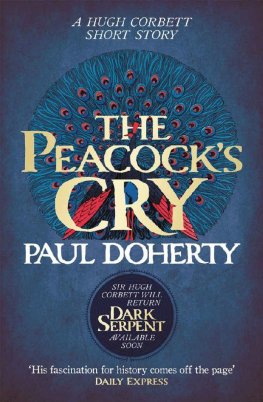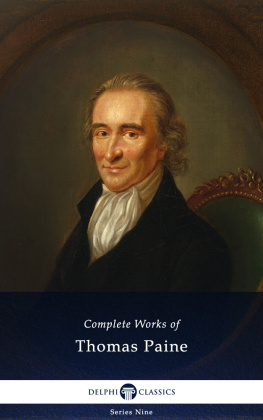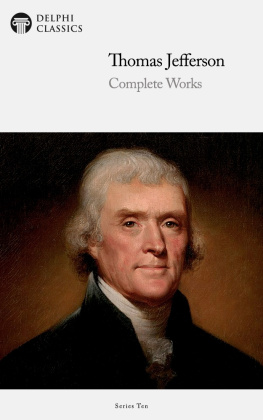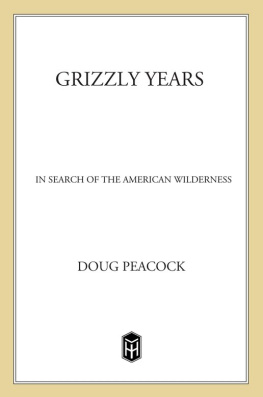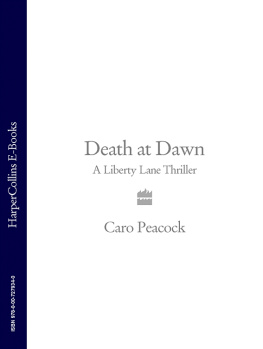
The Complete Works of
THOMAS LOVE PEACOCK
(1785-1866)

Contents

Delphi Classics 2018
Version 1


Browse our Main Series

Browse our Ancient Classics

Browse our Poets

Browse our Art eBooks

Browse our Classical Music series

The Complete Works of
THOMAS LOVE PEACOCK

By Delphi Classics, 2018
COPYRIGHT
Complete Works of Thomas Love Peacock

First published in the United Kingdom in 2018 by Delphi Classics.
Delphi Classics, 2018.
All rights reserved. No part of this publication may be reproduced, stored in a retrieval system, or transmitted, in any form or by any means, without the prior permission in writing of the publisher, nor be otherwise circulated in any form other than that in which it is published.
ISBN: 978 1 78656 125 1
Delphi Classics
is an imprint of
Delphi Publishing Ltd
Hastings, East Sussex
United Kingdom
Contact: sales@delphiclassics.com

www.delphiclassics.com
Parts Edition Now Available!

Love reading Thomas Love Peacock ?
Did you know you can now purchase the Delphi Classics Parts Edition of this author and enjoy all the novels, plays, non-fiction books and other works as individual eBooks? Now, you can select and read individual novels etc. and know precisely where you are in an eBook. You will also be able to manage space better on your eReading devices.

The Parts Edition is only available direct from the Delphi Classics website.
For more information about this exciting new format and to try free Parts Edition downloads , please visit this link .
The Novels

Weymouth, Dorset, where Thomas Love Peacock was born in 1785

Weymouth today

Peacock as a youth
Headlong Hall

Written in 1815 and published anonymously in 1816, this novella was Peacocks first long work of fiction. It sets a basic template followed in many of Peacocks subsequent novels: a group of eccentrics, each with a single monomaniacal obsession, who discuss the philosophical and political opinions of the day. By this device, Peacock derives humour and social satire from the various interactions and conversations. The setting of Headlong Hall is the eponymous country estate of Squire Harry Headlong Ap-Rhaiader, Esq., in Wales, who has decided to better himself by making the acquaintance of some of the most learned men of the day.
As a satirist Peacock owed something to Rabelais, Swift and to Voltaire and various French writers of the eighteenth century; but as a novelist he seems to owe little if anything to his predecessors. He tended to dramatise where traditional novelists narrated; he is more concerned with the interplay of ideas and opinions than of feelings and emotions; his dramatis personae often consists of a cast of more or less equal characters rather than one outstanding hero or heroine; his novels have a tendency to approximate the Classical unities, with few changes of scene and few if any subplots; they are novels of conversation rather than novels of action; in fact, Peacock is so much more interested in what his characters say to one another than in what they do to one another that he often sets out entire chapters of his novels in dialogue form. Platos Symposium is the literary ancestor of these works, by way of the Deipnosophists of Athenaeus, in which (as in much of Peacock) the conversation relates less to exalted philosophical themes than to the points of a good fish dinner.
Peacocks gentle and bantering sense of satire lacks the caustic indignation of Swift or the cutting edge of Rabelais. Often the targets of his satire are his own friends and acquaintances. It would be more accurate to say that Peacocks satire is directed not at individuals, but at the opinions they hold or the popular nostrums they subscribe to. In the preface to the collected edition of his novels (1837) he makes it clear that the characters of his novels are mouthpieces for such things when he lists them under such categories as, perfectibilians, deteriorationists, status-quo-ites, phrenologists, transcendentalists, political economists, theorists in all the sciences, projectors in all arts, morbid visionaries, romantic enthusiasts, lovers of music, lovers of the picturesque and lovers of good dinners.

Title page of the first edition
CONTENTS

Frontispiece of a later edition
All philosophers, who find
Some favourite system to their mind,
In every point to make it fit,
Will force all nature to submit.
Next page

